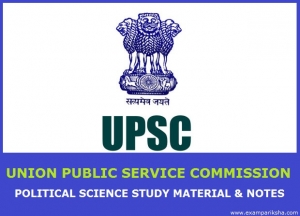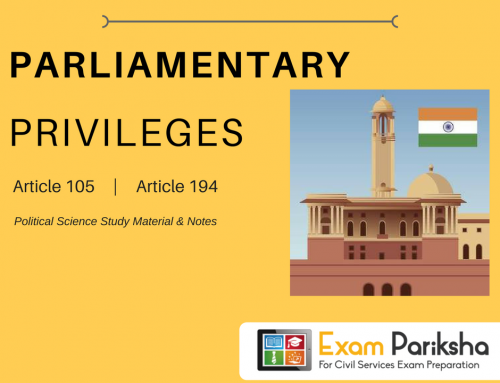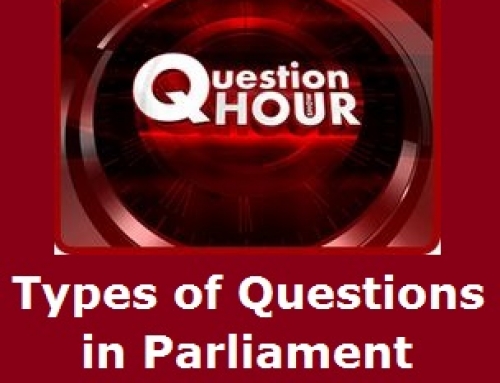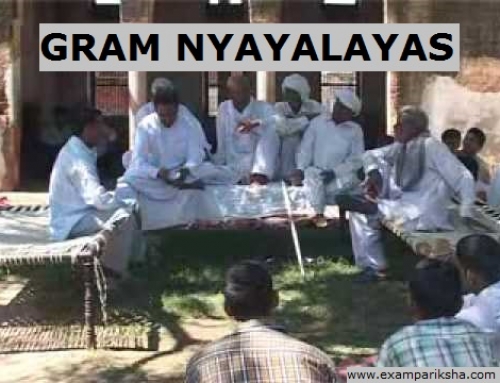The role and functions of Union Public Service Commission (UPSC) – Political Science Study Material & Notes
The UPSC is basically the central recruiting agency in India, which is an independent,constitutional body.
The Indian Constitution mentions about the provisions for the composition, appointment, removal, powers and functions of the Union Public Service Commission from Article 315 to Article 323 in Part XIV. Under the Article 315 of the Indian Constitution, the Union Public Service Commission is to be constituted for the recruitment of the civil services at the union level.
Composition of UPSC:
- The UPSC consists of a Chairman and other members who are appointed by the President of India.
- Generally there are nine to eleven members including the Chairman.
- Presently there is a sanctioned strength of – One Chairman and Ten members.
- The Chairman of UPSC is DEEPAK GUPTA. He was appointed on 22/11/2014 and will serve as the chairman till 20/09/2016.

- The Constitution mentions that – 50% of the members of UPSC should be those who have held government office for atleast 10 years. It mentions no other qualification.
- The President of India is empowered by the Constitution to determine the conditions of service of the Chairman and other members of the public service commission at the time of their appointment.
- All the members (including the Chairman) hold office for a six years term, or until they attain the age of 65 years.
- The members can also be removed by the President before the expiry of their term on the basis of either of the following four circumstances:
- He/she goes bankrupt(insolvent).
- He/she engages in any paid employment outside the official duties.
- He/she becomes mentally or bodily infirm.
- For misbehaviour. (In this, the matter is enquired by the Supreme Court, if he/she is found guilty the President can remove him/her).
Role of Union Public Service Commission :
- It acts as a “watchdog of merit system in India”, as envisioned in the Constitution of India.
- It is just concerned with the recruitment to the all-India services, and also advises the government on promotion and disciplinary matters when consulted.
- It should be noted here that, UPSC is not an authority to deal with classification of services, pay and service conditions, training, cadre management, etc. These functions fall under the purview of the Department of Personnel and Training.
- Therefore, UPSC is just a central recruitment agency and not a central Personnel agency(Department of Personnel and Training performs this role).
Independence of the UPSC :
The following provisions have been made in the Constitution to ensure the impartial and independent functioning of the UPSC.
- Security of Tenure : The chairman and other members of UPSC can only be removed on the basis of grounds mentioned in the constitution only.
- Security of Job conditions : Even though the President decides the conditions of service of the chairman and the members but he cannot change them afterwards to their disadvantage.
- No requirement of vote of Parliament for expenses : This is because the entire expenses of salaries, allowances and pensions of all the members including the chairman are charged on Consolidated fund of India.
- Chairman cannot be re-employed in the Government, not even on same post : This provision is with the exception of any constitutional post, which is not considered a job under the constitution.
- The members can be re-appointed to UPSC or any State PSC though, but not anywhere else.
Functions of UPSC :
Functions of the Union Public Service Commission (UPSC) are explained below:
- It conducts exams for appointment to the All-India Services, Public services of centrally administred territories and central services.
- It assists the States(if requested by 2 or more states) in formulating and implementing the schemes of joint recruitment for any services for selecting special qualification from candidates.
- It can serve any or all needs of the state upon their Governor’s request by permission of the President.
- The UPSC consults the government upon matters related to personnel management.
- It presents, annually, a report on its performance to the President. The President then places this report before both the houses of Parliament, along with a memorandum which explains the cases where the Commission’s advice was not accepted by the government with reasons for such non-acceptance.
It is clear by the above mentioned provisions that the UPSC makes recommendations which are only advisory in nature, hence, they are not binding on the government. However, there is a safeguard – the answerability of the Government to the Parliament for not heeding the recommendations of the commission.
<< Read about the role and functions of IRDA of India here >>
<< Read about the Finanace Commsission here >>
We hope this quick and short compilation is helpful for revision and brushing up the knowledge regarding the roles and functions of UPSC. If you want us to add anything more to the article, you are welcome to mention your suggestions in the comment section below. We would love to make relevant additions for the benefit of fellow aspirants.





